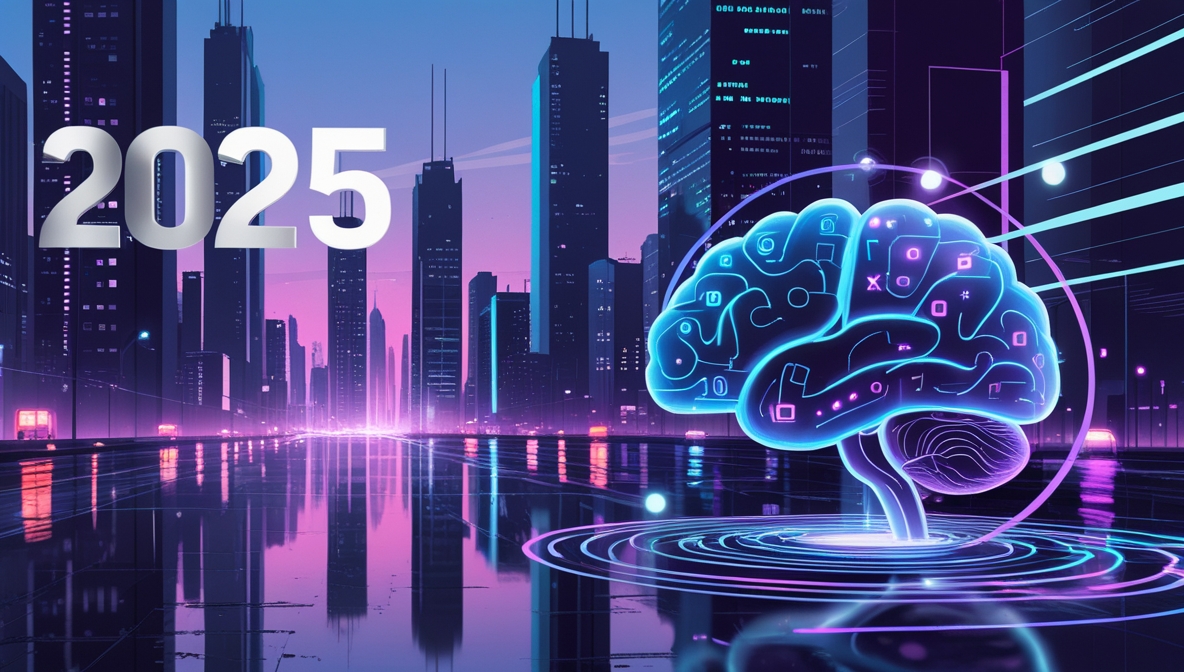Artificial intelligence is reshaping digital marketing by automating tasks, improving personalization, and refining customer engagement. Businesses now rely on AI-driven tools to analyze data, predict trends, and optimize campaigns in ways that were once impossible. The rapid advancements in AI technology are not just improving efficiency—they are redefining strategies.
Smarter Personalization with AI
Consumers expect tailored experiences, and AI delivers them with precision. Machine learning models process vast amounts of data to predict user preferences, adjust content dynamically, and serve personalized recommendations.
Key applications:
- Behavior-based targeting – AI analyzes browsing habits, purchase history, and interactions to create more relevant campaigns.
- Automated content curation – AI selects and delivers content based on user engagement patterns.
- Predictive recommendations – AI suggests products or services before users realize they need them.
Retailers, streaming platforms, and e-commerce brands now deploy AI-driven personalization to increase engagement and conversions.
AI-Generated Content at Scale
Creating content manually is time-consuming. AI accelerates this process by generating high-quality text, images, and even video. Brands use AI tools to produce blog posts, social media updates, and ad copy without sacrificing quality.
AI-powered content solutions:
- Natural language generation (NLG) – AI tools draft blog posts, product descriptions, and reports.
- AI-driven video editing – AI automates video production by assembling footage, adding captions, and optimizing for engagement.
- Voice and chatbot scripts – AI creates conversational flows that improve customer interactions.
AI-generated content is evolving, making it harder to distinguish between human and machine-written material.
Automated Ad Campaigns with AI
Advertising platforms now integrate AI to manage campaigns with greater accuracy. AI algorithms handle bidding, audience segmentation, and creative optimization, reducing wasted ad spend.
AI-driven ad strategies:
- Real-time bidding optimization – AI adjusts bids automatically to maximize ROI.
- Audience segmentation – AI identifies and categorizes potential customers with greater accuracy.
- A/B testing automation – AI runs multiple ad variations to determine the best-performing creatives.
Marketers no longer need to manually adjust campaigns—AI handles these tasks while continuously learning and improving results.
AI-Powered Chatbots and Virtual Assistants
Customer interactions are faster and more efficient with AI-powered chatbots. These systems provide instant responses, reducing wait times and improving satisfaction.
AI in customer engagement:
- Conversational AI – Chatbots understand natural language, making interactions feel more human.
- Multi-channel support – AI-driven bots operate across websites, messaging apps, and social media.
- Predictive customer service – AI anticipates customer issues and offers proactive solutions.
Companies use AI chatbots to handle support tickets, process orders, and engage users in personalized conversations.
Voice Search and AI-Driven SEO
Search behavior is changing, and AI plays a central role in adapting strategies. Voice search optimization and AI-driven SEO tools help brands stay visible in search results.
AI’s impact on SEO:
- Voice search optimization – AI adapts content for conversational queries.
- Automated keyword research – AI tools identify trending search terms.
- AI-powered content suggestions – AI recommends topics and formats based on search trends.
Marketers use AI to refine their SEO strategies, ensuring that content remains relevant and discoverable.
AI and Social Media Marketing
Social media platforms rely on AI to personalize feeds, detect trends, and optimize ad placements. Businesses leverage these tools to improve engagement and drive conversions.
AI-driven social media tactics:
- Trend analysis – AI detects emerging topics and viral content.
- Automated content scheduling – AI selects the best posting times for maximum engagement.
- Sentiment analysis – AI monitors brand perception by analyzing comments and mentions.
AI enables marketers to respond to trends in real time, improving visibility and audience interaction.
AI-Powered Email Marketing
Email campaigns are more effective with AI-driven automation. AI optimizes subject lines, content, and send times to maximize open and click-through rates.
AI’s role in email marketing:
- Dynamic content personalization – AI tailors email content based on recipient behavior.
- Predictive send times – AI determines the best times to reach subscribers.
- Automated A/B testing – AI refines subject lines and content for better performance.
AI-driven email marketing increases engagement while reducing the need for manual adjustments.
AI-Powered Analytics and Reporting
AI simplifies data analysis by identifying patterns and predicting future trends. Marketing teams use AI-driven insights to refine their strategies and allocate budgets more effectively.
AI-driven analytics:
- Real-time performance tracking – AI monitors campaigns and suggests improvements.
- Customer journey mapping – AI visualizes user behavior across multiple touchpoints.
- Churn prediction – AI identifies customers at risk of leaving and recommends retention strategies.
With AI, marketers gain deeper insights into campaign effectiveness and customer behavior.
Ethical Considerations and AI in Marketing
AI offers significant advantages, but ethical concerns remain. Data privacy, transparency, and algorithm bias require careful management.
Key ethical concerns:
- Data privacy compliance – AI systems must adhere to regulations like GDPR and CCPA.
- Algorithm bias – AI training data must be diverse to avoid biased outcomes.
- Transparency in AI decisions – Brands must ensure AI-generated recommendations are explainable.
Responsible AI implementation ensures ethical and effective marketing practices.
The Future of AI in Marketing
AI will continue shaping digital marketing through deeper automation, advanced analytics, and more precise personalization. Businesses that integrate AI effectively will gain a competitive edge, while those that resist may struggle to keep up.

No Responses